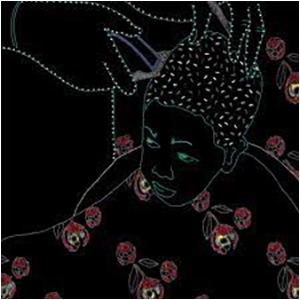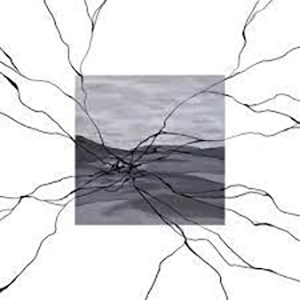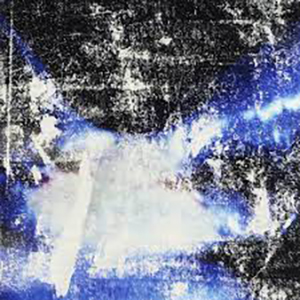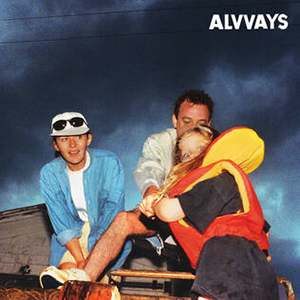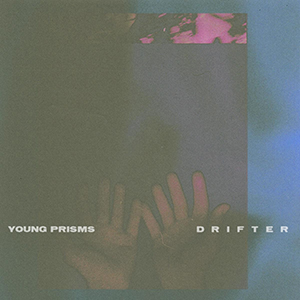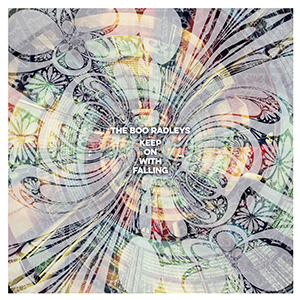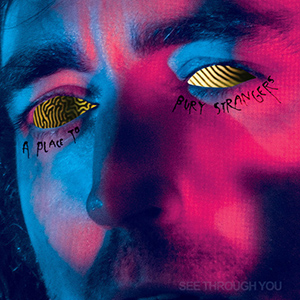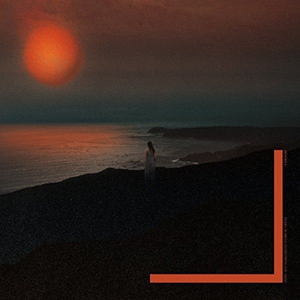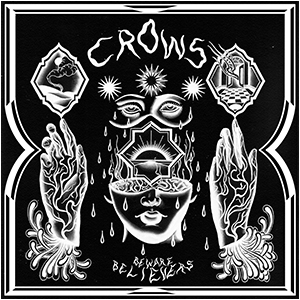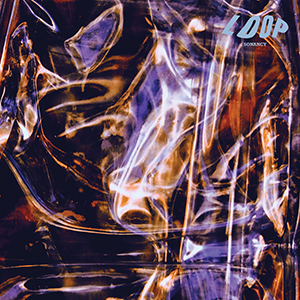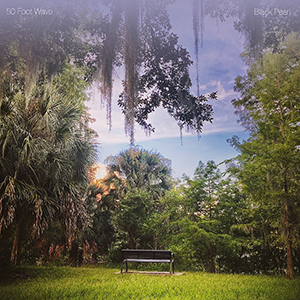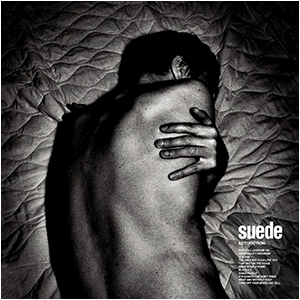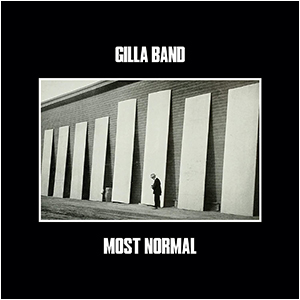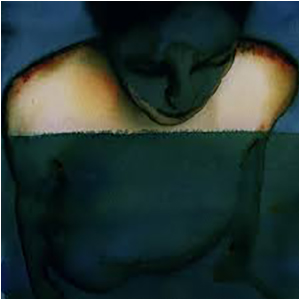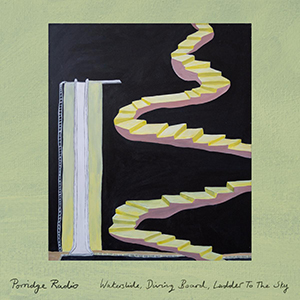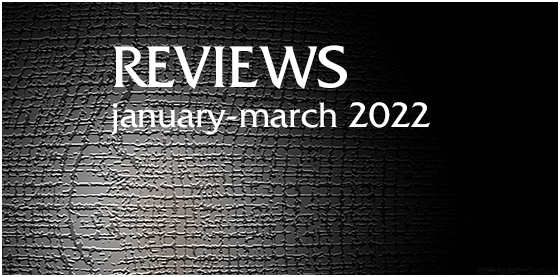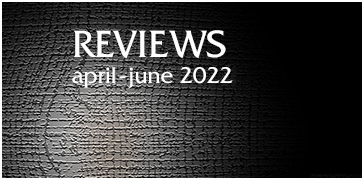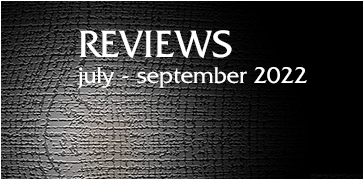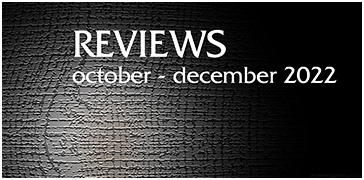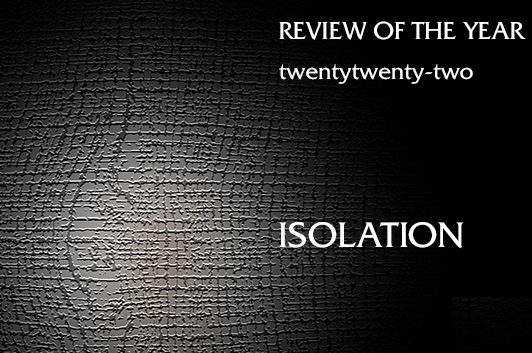
The Blob
The pandemic hit the music scene in a major way and it would be ridiculous to say that things were back to normal in 2022 simply because the world started to emerge from its shadow. Yes, the live circuit opened up again, but in a truncated way as the number of venues had shrunk as many could not survive the financial losses of lockdown. Overseas bands were still cancelling UK tours and dates because of additional problems brought on by Brexit. Many people were still concerned about going out and mixing with others in hot, close environments and so the size and demographic of audiences changed. And though many 'lockdown' albums were released in 2021, there were still quite a few being issued in 2022, with many bands remaining short of practice, especially in the live arena, some left with collections of half-formed songs or those written in unfamiliar circumstances where the usual quality control standards may have slipped. 2022 was not a year of confidence; it was a year of survival.
Of course there have been psychological changes. Over a long period of time people had been forced to be asocial, restricting their social networks and losing the interactive stimulation that helps keep the brain in good order. People with less complex social structures tend to have smaller amygdalae, the centre of the brain that processes emotions, and that can make the transition back to a normal social life disturbing. The classic response to this is to limit how widely you open yourself up, to be selective in what you allow yourself to absorb, and to attach yourself to the centre ground where the risks are minimal.
This has been quite evident in the alternative music scene. For a decade it has flourished at every end of the spectrum, from the twee to hardcore industrial, but right now the focus has narrowed and those on the outer edges appear far more isolated. And we all know that it is usually those on the extremes who create the most change by causing the most havoc, challenging preconceptions and shaking the world by the throat. There appears to have been a gathering in the middle where this whole, safe community has emerged with unthreatening sounds, mildly chiding vocalists and an embracing of what many of us would call convention. Alternative music has become an amorphous blob of gentility and goodwill. We hesitate to call it middle class, but sometimes it feels like a Liberal Democat convention.
In spite of this, the year has emerged as a stronger one than 2021, which was unavoidably fairly patchy. There are still a few bands who like to sit at the bar with a packet of crisps while their peers bop around the dancefloor to Harry on the jukebox. These are bands who wouldn't fit in if they were micro-managed by Lovehoney, so thank heavens for the likes of Gilla Band, who refuse to be broken by the weight of convention and carve out music as if it matters more than anything in life. And we feel at the moment that such a commitment isn't really the primary concern of a lot of people who are in search of something more embracing and warming.
Another attack on the margins has been the vinyl shortage which has affected the psych labels in particular very badly. The wait to get records pressed is still ludicrously large, stretching into months, and labels are completely unaware of what will appear at any given time. If three albums have been ordered, all three may turn up at once or delivery will be piecemeal. It makes a release schedule little more than a fantasy and this has hindered one of the most dynamic of genres from delivering to its full potential. Of course other options to vinyl are available, but most of the audience for this music border on obsessive for vinyl and the result has been that psych music in 2022 has made its smallest impact on the scene for many years.
OK, on to lists. If you read our review every year you will know this is a bugbear. List journalism is lazy and pointless and became the darling of the music media when it realised it didn't have to pay real writers who could think but just print a whole series of lists and put big pictures everywhere. No wonder the weekly music press died out; it didn't deserve to survive. Most people didn't want NME and Melody Maker to become Smash Hits but they did, people forgot how to read and the whole world went to hell. Yet, despite the challenges of inattentive brains and the internet there are still two music monthlies in existence, Mojo and Uncut. Both of these rely on older readers to survive and each month drag out often dead icons in order to capture sales. The Beatles (twice), Kate Bush (twice), Bruce Stringsteen (twice), Patti Smith, David Bowie, George Harrison, Paul McCartney, Miles Davis, The Monkees, The Rolling Stones, Neil Young, Bob Dylan, Joni Mitchell and Queen were cover stars this year with the youngest offenders being the Arctic Monkeys followed by Jack White (47), Björk (57) and Johnny Marr (59). It is doubtful we will ever return to the days of seeing young, challenging bands feature on the covers of music magazines which is a terrible shame.
The other way these magazines survive is by keeping their advertisers happy and giving great reviews to virtually every album so as not to offend anybody. We don't quantify art as the very concept is ludicrous but the amount of albums that get awarded 10 out of 10 every year is plainly silly as there is no such thing as a perfect record, even if Ziggy Stardust and Metal Box would come close. Some things never change, then, but in other ways there has been a little movement this year. For the first time in forever, the lists of best albums in these magazines have noticeably diverged. Only six of the Uncut top twenty are present in the Mojo top twenty and Mojo has taken a considerable step towards the world of independent music. Of course, when the alternative has become an inoffensive, amorphous blob this is easier to do, but it is a noticeable shift even if most of their choices border on the edges of staid.
We've not included their lists any more as they really are quite depressing, but as this is the time of year when music lovers really do take an interest to see if they have overlooked anything essential we have included those from Louder Than War, NME, Rough Trade, Resident and 6 Music as a counterbalance to our own. We are certainly in the position of not having advertisers to please and we are not looking to sell anybody anything, though admittedly some of those others are. We just think there are albums around that you may well have missed and the bands who have produced them are worth supporting. If you decide our albums of the year are not up to scratch then check out the other lists. We believe alternative music lovers will have more joy with those outlets than most others. If you happen to love lists then those glossy monthlies have whole websites full of them. Indulge.
Media-wise, the big news in the UK in 2022 was that sales of vinyl topped those of CDs for the first time in thirty-five years. UK record sales hit just under £117 million in 2022, with CD sales coming in at just over £98 million. That means vinyl had a 16% lead over the digital format that once looked as though it had hammered the final nails into its coffin. This happened a year earlier in the States where vinyl overtook CDs in 2021 for the first time in thirty years and now contributes two-thirds of the total revenue of physical music sales.
Though the Entertainment Retailers Association regard this as "a watershed moment for the entire music industry," it is not the case that everything is rosy in the garden. A huge proportion of vinyl sales were recorded by Taylor Swift and Harry Styles, many of whose fans admit to not even owning a turntable. With Swift producing multiple versions of her album's artwork, there were many fans buying more than one copy simply as collectors' items. Of course, these mass productions tied up many of the pressing plants around the world which led to massive delays in receiving orders from the smaller labels who had been instrumental in igniting the vinyl revival. If their audiences tire of the constant waits then sales of vinyl in future years could well suffer.
The industry as well has made every mistake it is possible to make in the face of the vinyl resurgence. When demand is high the first rule in industry is to ramp up the means of production. That should be used to keep supply levels high, with new product being easily available, and then prices should be kept low to consolidate that demand. None of this has happened. The major labels have clogged up the existing plants without investing in new facilities and consequently the variety of albums available for purchase has stagnated. There is a limit to how many copies of Rumours you can sell, while not fulfilling the existing demand for back catalogue from a whole host of artists. Despite it now being the main medium for physical music releases, the retailers and labels have continued to push the fiction that vinyl is somehow a premium product and prices have risen to a ludicrous degree. In most cases the record labels have not had to spend on producing new music and are simply pressing new records from old tapes they already own. The price of an album, then, should not be more than £20, but when you walk into a major record retailer you will find abums up for sale for £35, £40 or even more. This is completely unsustainable, yet nothing appears to be changing. If nothing does, the vinyl crash cannot be far away and that would be a terrible waste and a huge opportunity lost. It is always greed that leads to downfall of these multi-nationals.
Back to our albums of the year. There aren't many debut albums there, but there are not many from old hands either. Suede have returned with their fourth album since their return and it is a bloody impressive collection and Loop are back with their first album for some thirty years, which has been marvellous to see. There is also the return of the much-missed TRAAMS. Amongst those are a lot of refreshing young bands releasing music that deserves to be noted; often these can lie hidden away and only uncovered with some perserverence and patience. Hopefully this list will give you a starting point on some great new sounds.
What you won't find is any bands who talk over their songs, the latest annoying trend to match that of beards and full arm tattoos which surely must have seen their day.
Before we head off for a year then a word for the departed. A surprising number of musicians left us in 2022, some of them truly iconic. Though not dying until the early days of 2023, Jeff Beck was probably the most influential guitarist of the 1960s and early 1970s. A true talent. Sadly, his death followed on from that of Keith Levene, the most infuential guitarist of the post-punk and alternative era. There is hardly any music we listen to today that wasn't affected by those two musicians. Keith himself regarded Jeff Beck as the world's greatest guitarist and would have loved to have met him. He added, "I don't think Jeff could have played what I did though." I think Jeff would have concurred. And a word for Wilko Johnson, the most amazing guitarist and a mesmerising performer. Another huge loss. What a world.
Thanks to Gary, Jackie and Jake for their input into our Albums of the Year list. Big thanks to John Robb for his contribution. We have written before about how the rise of the internet coincided with the collapse of the alternative community. It ended the cycle of trends in music by making everything available at once which can appear exciting but is also destructive. The internet is a corporate weapon that works by division. We are all now consumers whose tastes are tracked in minute detail and ruthlessy exploited and commercially validated. This can lead to horrible complacency as the things we like are constantly dangled before our eyes in ever more exclusive packages; it is easy to remain in your little compartment and let your brain decay. The positive side is that the internet also gives young bands the chance to find an audience that is relatively approachable. If you do the work, you can usually find the goods. In his article, John looks beyond the realm of alternative music to capture the bigger picture. And the bigger picture is ever more fluid...
Look out for John's new book, The Art Of Darkness: The History of Goth, which is being published in March.
Now make some music that will shake our bones and our brains ....
Albums of the Year
Louder Than War
1. Suede - Autofiction
2. Fontaines DC - Skinty Fia
3. Ezra Furman - All Of Us Flames
4. Déjà Vega - Personal Hell
5. King Gizzard & The LW - Omnium Gatherum
6. AlterModerns - Side Effects Of Reality
7. Gilla Band - Most Normal
8. Osees - A Foul Form
9. Sea Power - Everything Was Forever
10. Wet Leg - Wet Leg
11. The Black Angels - Wilderness Of Mirrors
12. The Battery Farm - Flies
13. The Bobby Lees - Bellevue
14. The Vat Egg Imposition - Shop Tones
15. Sarah Shook & The Disarmers - Nightroamer
16. Girls In Synthesis - The Rest Is Distraction
17. Goat - Oh Death
18. Björk - Fossora
19. Cate Le Bon - Pompeii
20. The Orielles - Tableau
www.louderthanwar.com
New Musical Express
1. Arctic Monkeys - The Car
2. Wet Leg - Wet Leg
3. Beyoncé - Renaissance
4. Fontaines DC - Skinty Fia
5. Kendrick Lamar - Mr. Morale
6. Rina Sawayama - Hold The Girl
7. C Adigéry & B Pupul - Topical Dancer
8. Nova Twins - Supernova
9. Rosalía - Motomami
10. The 1975 - Being Funny
11. Black Country, New Road - Ants From Up
12. Taylor Swift - Midnights
13. Charli XCX - Crash
14. Jockstrap - I Love You Jennifer B
15. Yard Act - The Overload
16. Harry Styles - Harry’s House
17. Pusha T - It’s Almost Dry
18. Confidence Man - Tilt
19. Wizkid - More Love Less Ego
20. Foals - Life Is Yours
www.nme.com
Rough Trade
1. Jack White - Fear of the Dawn
2. The Smile - A Light For Attracting Attention
3. Yard Act - The Overload
4. Fontaines DC - Skinty Fia
5. Rina Sawayama - Hold The Girl
6. Black Country, New Road - Ants From Up
7. Yeule - Glitch Princess
8. Black Midi - Hellfire
9. Wet Leg - Wet Leg
10. The Lounge Society - Tired of Liberty
11. Weyes Blood - And In The Darkness
12. Mitski - Laurel Hell
13. Horsegirl - Versions of Modern Performance
14. Yeah Yeah Yeahs - Cool It Down
15. Kelly Lee Owens - LP.8
16. J Buckley /B Butler - All Our Days
17. Osees - A Foul Form
18. Ibibio Sound Machine - Electricity
19. The Orielles - Tableau
20. Nova Twins - Supernova
www.roughtrade.com
Resident - Brighton Record Shop
1. Just Mustard - Heart Under
2. C Adigary & B Pupul - Topical Dancer
3. Wet Leg - Wet Leg
4. Ditz - The Great Regression
5. Muna - Muna
6. Yard Act - The Overload
7. Cmat - If My Wife New I’ll Be Dead
8. Sinead O'Brien - Time Bend & Break The Bower
9. Alabaster Deplume - Gold
10. PVA - Blush
www.resident-music.com
BBC 6 Music
1. Kendrick Lamar - Mr. Morale
2. Yard Act - The Overload
3. Kae Tempest - The Line Is a Curve
4. C Adigéry & B Pupul - Topical Dancer
5. Wet Leg - Wet Leg
6. Warmdüscher - At The Hotspot
7. Fontaines DC - Skinty Fia
8. Black Thought & Danger Mouse - Cheat Codes
9. Arctic Monkeys - The Car
10. Gwenno - Tresor
www.bbc.co.uk/6music

What exactly was 2022?
In ancient post-war pop culture times the years were clearly defined battlefields where you had to take sides. In the new now everything seems to be happening all at once and the past is mixed up with the future. Pop culture is now old. It’s now a pensioner.
John Robb

































